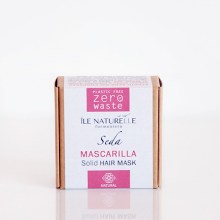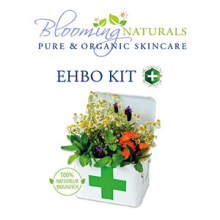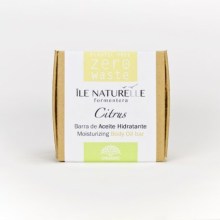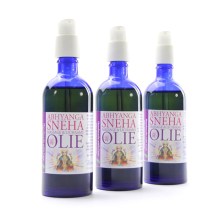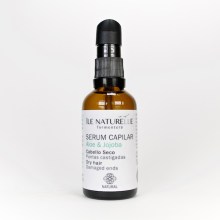Legal compliance - cosmetics
''Legal compliance cosmetics'' - it can sound like a scary X-file! Do you have the passion and determination to start your own natural cosmetics/personal care/soap-making business? Then, with time, patience and healthy doses of calming or energising herbal tea you will certainly succeed in becoming legally compliant. In this article we offer some basic information and explain how we, as a responsible supplier of natural ingredients, can play a key part in your legal compliance.
Do you make or plan to make your own skincare / personal care products (or have them made for you) and sell them to the general public anywhere within the EU? Then you are the ''Responsible Person'' (RP) for the legal compliance of your products under the EU Cosmetic Products Regulation (EC) No. 1223/2009. This came into force in 2013 and has since had various amendments. Finding your way through this regulation can be daunting or confusing for the newcomer. A good way to start is to gain an overview from a reliable source. Helpful overviews can be found on the websites of trade associations such as Cosmetics Europe and (for producers here in The Netherlands) Nederlandse Cosmetica Verenigen (NCV). These organisations can also help you keep up to date with changes or amendments to the regulations via news feeds.
(For producers in the UK, or for non-UK producers who want to sell their products in the UK, the EC 1223/2009 has been generally retained after Brexit, but with significant amendments. To read about those amendments click here).
Documents basic to legal compliance
How can Magical Naturals help? For legal compliance it is important to have all the necessary documentation from your suppliers. These include, for each ingredient in your formula, material safety data sheet (MSDS), technical data sheet (TDS) and, where relevant (such when you use essential oils) the International Fragrance Association (IFRA) declaration and associated allergen declaration. Further, for every purchased batch of an ingredient you also need a certificate of analysis (COA) from the supplier. These documents are essential, amongst others, for your product information file (PIF) and batch trace records. Only the documents provided by the suppliers of the ingredients you use in each batch are valid, so if you change supplier you must obtain documents from your new supplier. It is also important that the documents are up to date.
For business customers Magical Naturals provides these documents free of charge on request after you have purchased the ingredients from us. We are committed to ensuring that our ingredients comply with the legal requirements and are supported by up to date documents. For an overview of the categories of natural ingredients we supply see our category introduction page. If you don't find what you are looking for contact us; we have access to many more ingredients than we can feature on our website.
In addition to the above documents you may need to obtain reports of a stability test and a challenge test depending on the composition of your recipes. Bear in mind that some of these tests can take several weeks or even months. The test reports are then kept in your PIF. Testing services are provided by independent laboratories and their fees can vary, with some offering reduced prices for testing multiple products at the same time. Your appointed safety assessor (see next section) will usually be able to recommend such labs or may even have their own in-house lab.
Safety assessment - central to legal compliance
The next vital aspect of legal compliance - and often the most expensive - is the safety assessment of your product formulae / recipes, for which you will need most of the abovementioned documents. This assessment is carried out by a suitably qualified safety assessor of your choice. The assessor checks your formulae and its label(s), intended use and packaging according to toxicological and other data. The assesor does not normally require samples of the product unless they are also arranging any necessary test, such as the stability or challenge test, on your behalf.
You can appoint any safety assessor whose qualifications meet the requirements of the EU cosmetics regulations. They do not necessarily have to be based in the same country as you. Their prices and service vary greatly, so it is important to shop around. As a result of our business networking Magical Naturals can recommend various safety assessment partners that we know will do a good job for you at a reasonable cost. Some safety assessors also offer to notify your products on the CPNP (see next section) as an extra service if you do not want to do it yourself.
Product notification
When your formula is approved the safety assessor issues you with the cosmetic product safety report (CPSR) which forms part of the PIF kept securely by the RP. Only then can the products be notified (registered) - the next step - with the EU database called the Cosmetic Products Notification Portal (CPNP). This involves uploading your company information, parts of the PIF and photographs of the product label and packaging. The system is free of charge and relatively easy to use, especially for producers of mostly natural products. To access the CPNP you must first create an EU login account to authenticate your business (so if you are a new start-up you must first have your chamber of commerce number). A very helpful FAQ and tutorial section of the CPNP can be found here.
Note that your product information on the CPNP is accessible only to the RP (whether that is yourself or someone you have delegated this position to) and to the the regulatory enforcement agency and the national poison centre (or equivalent) of each EU state where you plan to sell your products. The CPNP provides these authorities with quick access to the product information in the event of a problem. If you amend a formula, appoint a distributor or stop producing a product for any reason, this must also be notified.
PIF management - ongoing compliance
Even small cosmetics / skincare / personal care businesses can struggle with the ongoing paperwork necessary to keep your product information file up to date, but this is essential for legal compliance. Among other things, a record and log must be kept of each batch that you produce, together with the COAs of the ingredients. Your records must be able to demonstrate batch traceability and ongoing conformance to Good Manufacturing Practice (GMP).
Whether you handle these aspects of your business yourself or delegate it to your safety assessor and / or contract manufacturer (see next section) we highly recommend Cosmetri, particularly if you have multiple products and grow to the extent that you need to employ staff. Cosmetri is a subscription and cloud-based PIF management software that enables you to streamline your production records to ensure legal compliance. An additional module also helps you ensure compliance with Cosmetics Good Manufacturing Practices (GMP) ISO:22716. For details visit www.cosmetri.com
Make your own or third party production?
So you have designed and formulated your brand. Your products are safety assessed and notified on the CPNP. Now you are all set to devote your attention to marketing and selling. In the meantime your products must be physically produced in accordance with the legal requirements. Do you have the time and facilities to do this and make your products yourself? This is worthwhile to check when first planning the set-up of your business, as you may need to adapt any existing facilities to meet legal compliance. If you work from home, for example, do you have a dedicated, hygienic, well-ventilated and secure area for production, clean-up and storage? Are you able to store the ingredients, packaging and finshed stock in optimum conditions?
Alternatively, you can have your products made by a contract (third party) cosmetics manufacturer. Are you looking for such a contract manufacturer? As with safety assessors and laboratories, it is important to shop around to find a manufacturer who fits both your budget and your values. Find out what is included in the costs. For example: label design and printing? Outer packaging, storage and distribution? What are their minimum production/batch quantities compared to the shelf life of your products. If your products are made with natural or organic ingredients can the manufacturer guarantee segregation from synthetic or non-organic ingredients? Check that any contract between parties includes an adequate confidentiality clause to protect the intellectual property of your formula. Which party will act as RP and which is responsible for products liability insurance? Do you have any voice in the selection of the ingredients and packaging suppliers? These are just a few of the important points to keep in mind when evaluating a potential third party producer.
For clients of Magical Naturals who wish to change from self-producing to third party production, we can recommend a partner (in The Netherlands) who works predominantly with natural ingredients and has state-of-the-art facilities fully compliant with cosmetics GMP. Of advantage to start-ups is this manufacturer’s flexible approach to minimum batch quantities and their friendly service.
Any questions?
Contact us at info(at)magicalnaturals.com




